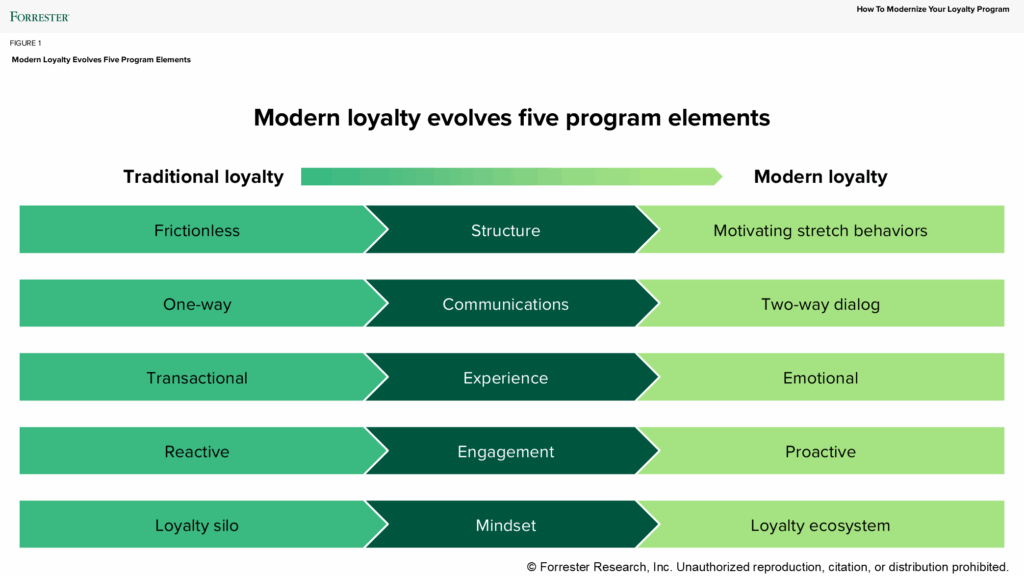Modern Loyalty Requires A Diversified Approach To Engagement
Marketers have leveraged programmatic loyalty for decades to identify their best customers and deliver a differentiated brand experience. And members have experienced everything from simple digital punch cards to highly sophisticated enterprise loyalty programs that attempt to anticipate their purchasing needs and recognize their loyalty with personalized experiences and offers. This wide spectrum of experiences reflects where a brand is in their loyalty journey.
Though the punch card may seem like a simplistic loyalty tactic from the past, it can serve as a foundational step in a journey to achieve objectives such as awareness, growth, or operational scaling. Basic loyalty mechanics also help companies collect valuable customer data and develop customer insights that serve as the jumping-off point for innovation and iteration. As brands evolve their programs, they build modern loyalty strategies that address new objectives including incrementality, share of wallet, and emotional engagement.
Forrester’s 2024 data shows that 77% of US online adults agree that they like to engage with loyalty programs even when they’re not purchasing. To win the competition for consumers’ attention, modern loyalty programs balance the base desire for financial incentives with the increased expectation for unique experiences and special treatment. They build on the characteristics and practices of traditional loyalty programs across five categories: structure, communications, experience, engagement, and mindset.

To shift from a traditional loyalty strategy to a modern loyalty approach, check out our recently published report, How To Modernize Your Loyalty Program, in which we explore the following topics:
- Common pitfalls of a transactionally focused strategy. Traditional loyalty programs that focus primarily on the transactional member journey risk driving loyalty to members’ wallets with little to no loyalty to the brand. We look at four key elements that limit the long-term impact from a traditional loyalty approach that fails to evolve over time.
- How modern loyalty benefits from a diversified engagement strategy. Building on the core elements of traditional loyalty, modern loyalty activates five engagement strategies to build a diversified loyalty experience. This approach leverages program structure to drive accrual, voice-of-the-customer insights, personalized experiences, proactive engagements, and an enterprisewide loyalty strategy to maximize value and customer lifetime loyalty.
- How to develop a modern loyalty approach. Traditional loyalty strategies that optimize CRM and provide compelling financial benefits are foundational to a modern approach. In this report, we explore how brands augment those elements with a focus on behavior change, customer feedback, the power of soft benefits, personalizing the brand experience, and how a corporate culture of loyalty can make the difference.
Questions? We’d love to help you with your loyalty initiatives. Connect with us by scheduling a guidance session.
